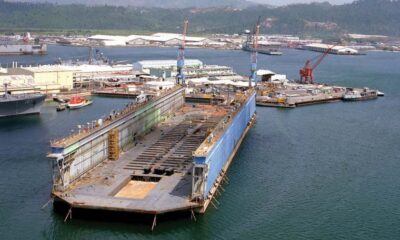- AfDB to Play Bigger Role in Nigeria, Other African Economies by Investing in Infrastructure Private Equity
The Board of Directors of the African Development Bank has approved its third equity investment of US$40 million in Africa Infrastructure Investment Fund (AIIF3), a closed-ended pan-African infrastructure fund managed by South Africa-based Africa Infrastructure Investment Managers (AIIM).
This is according to a statement by AfDB, which described AIIM as one of Africa’s most experienced infrastructure fund managers, saying “The Fund will focus on acquiring positions of significant influence in roads, bridges, airports, rail links, ports, logistics, power generation, utility distribution, as well as telecommunication assets. AIIF3 boasts an extensive pipeline of bankable or near-bankable infrastructure projects. Having reviewed hundreds of potential investments, AIIM has narrowed down a pipeline of circa US$ 500 million, including key projects such as: Bugesera Airport, Libreville Bypass, and Kampala-Jinja Expressway.
The proposal represents the Bank’s third investment with this fund manager, following a 1996 investment in SAIF and a 2010 investment in AIIF2. With this, the African Development Bank stands to have positive additional role through this investment, given that the fundraising market continues to be very challenging, leaving an important role to be played by DFIs.
Commercial and institutional investors are likely to view the Bank’s investment as a positive demonstration effect. The Bank’s investment will also ensure the highest environmental and social standards are applied to AIIF3.
In terms of development outcomes, AIIF3 will create a quantifiable and measurable social and environmental impact by supporting energy and transport infrastructure access across Sub-Saharan Africa. The Fund will support the creation of over 1,500 jobs at the project level and enhance capacity building and skills-transfer.
In his presentation to the Board, the Bank Group’s Director of Infrastructure and Urban Development, Amadou Oumarou, said that private equity in Africa remains a nascent sector. “The recent downturn in global commodity prices and a reorientation away from private equity in Africa by a few DFIs have lowered fundraising expectations across the board. This is negatively affecting the availability of equity capital for Africa’s infrastructure space. In this sense, the Bank would play a counter-cyclical role through this investment,” he said.
AIIF is Africa-based and features five regional offices in South Africa, Nigeria, Cote d’Ivoire, and Kenya. This translates to on-the-ground knowledge and strong relationships to source infrastructure investment opportunities.
This Equity Investment is fully aligned with the Bank’s operational priorities and the High 5s, particularly ‘Industrialise Africa,’ ‘Light up and Power Africa,’ and ‘Integrate Africa’. It will sustain the development of Africa’s infrastructure market.


 Forex2 weeks ago
Forex2 weeks ago


 Naira2 weeks ago
Naira2 weeks ago
 Naira4 weeks ago
Naira4 weeks ago
 Company News4 weeks ago
Company News4 weeks ago
 Billionaire Watch1 week ago
Billionaire Watch1 week ago




 Naira2 weeks ago
Naira2 weeks ago




 Naira1 week ago
Naira1 week ago




 Naira4 weeks ago
Naira4 weeks ago

















